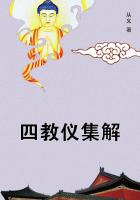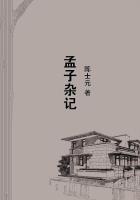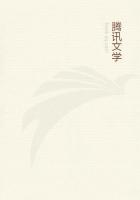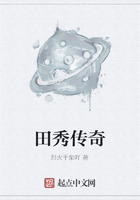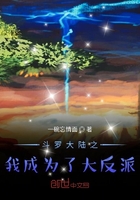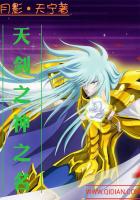Then said I in my heart,As it happeneth to the fool,so it happeneth even to me,and why was I then more wise?then I said in my heart,that this also is vanity.For there is no remembrance of the wise more than of the fool for ever;seeing that which now is in the days to come shall all be forgotten.And how dieth the wise man?as the fool.Therefore I hated life;because the work that is wrought under the sun is grievous unto me:for all is vanity and vexation of spirit.Yea,I hated all my labour which I had taken under the sun:seeing that I must leave it unto the man that shall be after me....For what hath man of all his labour,and of the vexation of his heart,wherein he hath laboured under the sun?For all his days are sorrows,and his travail grief;yea,even in the night his heart taketh no rest.this is also vanity.Man is not blessed with security that he should eat and drink and cheer his soul from his own labour....All things come alike to all:there is one event to the righteous and to the wicked;to the good and to the evil;to the clean and to the unclean;to him that sacrificeth and to him that sacrificeth not;as is the good,so is the sinner;
And he that sweareth,as he that feareth an oath.This is an evil in all that is done under the sun,that there is one event unto all;yea,also the heart of the sons of men is full of evil,and madness is in their heart while they live,and after that they go to the dead.For him that is among the living there is hope:for a living dog is better than a dead lion.For the living know that they shall die:but the dead know not any thing,neither have they any more a reward;for the memory of them is forgotten.also their love,and their hatred,and their envy,is now perished;neither have they any more a portion for ever in any thing that is done under the sun."
So said Solomon,or whoever wrote those words.[Footnote:tolstoy's version differs slightly in a few places from our own Authorized or Revised version.I have followed his text,for in a letter to Fet,quoted on p.18,vol.ii,of my "Life of Tolstoy,"he says that "The Authorized English version [of Ecclesiastes]is bad."--A.M.]
And this is what the Indian wisdom tells:
Sakya Muni,a young,happy prince,from whom the existence of sickness,old age,and death had been hidden,went out to drive and saw a terrible old man,toothless and slobbering.the prince,from whom till then old age had been concealed,was amazed,and asked his driver what it was,and how that man had come to such a wretched and disgusting condition,and when he learnt that this was the common fate of all men,that the same thing inevitably awaited him--the young prince--he could not continue his drive,but gave orders to go home,that he might consider this fact.So he shut himself up alone and considered it.and he probably devised some consolation for himself,for he subsequently again went out to drive,feeling merry and happy.But this time he saw a sick man.
He saw an emaciated,livid,trembling man with dim eyes.The prince,from whom sickness had been concealed,stopped and asked what this was.And when he learnt that this was sickness,to which all men are liable,and that he himself--a healthy and happy prince--might himself fall ill tomorrow,he again was in no mood to enjoy himself but gave orders to drive home,and again sought some solace,and probably found it,for he drove out a third time for pleasure.But this third time he saw another new sight:he saw men carrying something.'What is that?''A dead man.''What does *dead*mean?'asked the prince.He was told that to become dead means to become like that man.The prince approached the corpse,uncovered it,and looked at it.'What will happen to him now?'asked the prince.He was told that the corpse would be buried in the ground.'Why?''Because he will certainly not return to life,and will only produce a stench and worms.''And is that the fate of all men?Will the same thing happen to me?Will they bury me,and shall I cause a stench and be eaten by worms?''Yes.''Home!
I shall not drive out for pleasure,and never will so drive out again!'
And Sakya Muni could find no consolation in life,and decided that life is the greatest of evils;and he devoted all the strength of his soul to free himself from it,and to free others;and to do this so that,even after death,life shall not be renewed any more but be completely destroyed at its very roots.So speaks all the wisdom of India.
These are the direct replies that human wisdom gives when it replies to life's question.
"The life of the body is an evil and a lie.Therefore the destruction of the life of the body is a blessing,and we should desire it,"says Socrates.
"Life is that which should not be--an evil;and the passage into Nothingness is the only good in life,"says Schopenhauer.
"All that is in the world--folly and wisdom and riches and poverty and mirth and grief--is vanity and emptiness.Man dies and nothing is left of him.And that is stupid,"says Solomon.
"To life in the consciousness of the inevitability of suffering,of becoming enfeebled,of old age and of death,is impossible--we must free ourselves from life,from all possible life,"says Buddha.
And what these strong minds said has been said and thought and felt by millions upon millions of people like them.And I have thought it and felt it.
So my wandering among the sciences,far from freeing me from my despair,only strengthened it.One kind of knowledge did not reply to life's question,the other kind replied directly confirming my despair,indicating not that the result at which I had arrived was the fruit of error or of a diseased state of my mind,but on the contrary that I had thought correctly,and that my thoughts coincided with the conclusions of the most powerful of human minds.
It is no good deceiving oneself.It is all--vanity!Happy is he who has not been born:death is better than life,and one must free oneself from life.

